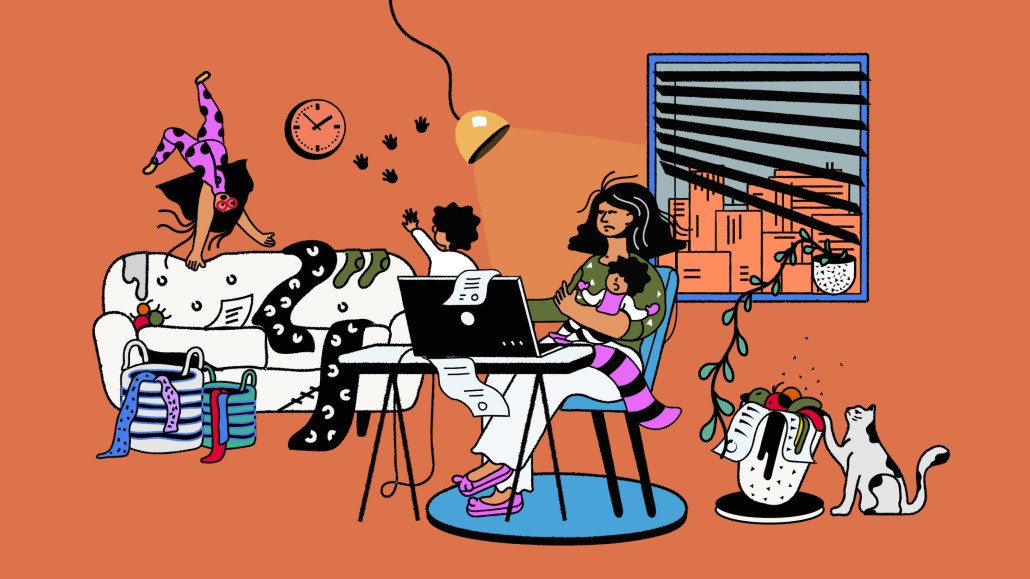Secure your place at the Digiday Media Buying Summit in Nashville, March 2-4
How health publisher Verywell is investing in research to become the digital authority on mental health

If 2020 did one positive thing, it lessened the stigmas around mental illness and encouraged people to seek guidance on mental health.
And that’s one trend that might continue: one out of every five Americans said their usage of mental health apps and sites will increase in the coming months, according to a study of 519 participants by research consultancy Reach3 Insights in February. What’s more, nearly half of the younger respondents aged 18 to 34-years-old said they were interested in using mental health apps.
Niche publishers covering the mental health space are feeling the effects of this growing interest. Over the past year, Dotdash’s health and wellness title, Verywell, had 10% growth in unique monthly visitors, bringing its average to 38.5 million uniques per month. Its mental health vertical, Verywell Mind, however, grew by 53% year over year, bringing its average to 7.1 million unique visitors per month, according to Rachel Berman, svp and general manager of Verywell Mind.
“Our bread and butter is evergreen content, but this year, with the focus on mental health, we needed to be talking in the moment,” said Emily Rose, associate general manager at Verywell Mind.
So the five-person editorial staff, and a network of 20 freelance writers, created a news program that produces between five to 10 new articles per week. All of the articles are approved by the brand’s review board made up of about 20 medical doctors, psychiatrists and therapists before getting published, to ensure accuracy and authority on the topic.
The conversation around employee burnout and adjusting to a post-Covid world is occupying much of the internet conversation, especially since May is considered a national mental health month. To further assist in those conversations, Verywell is looking to build out its Mind vertical with a new proprietary research initiative to establish itself as a go-to source for information on anxiety and self-care.
The research project, called the Mental Health Tracker, is conducted by Dotdash’s in-house research team. Starting this month, the tracker will poll 4,000 subjects on how they are mentally coping and responding to the reopening of society coming out of the worst of the pandemic. Every month, that group of volunteers will be asked questions like, “Are you seeking help? Do you have any new coping mechanisms? And have your habits changed?”
“We want to tap into the larger subset of the population during the return to normalcy,” said Rachel Berman, svp and general manager of Verywell Mind.
This information will all be used to inform the brand’s editorial coverage, including a multi-platform package, called the “Return to Normalcy,” which is meant to be a one-stop-shop for readers navigating everything from the fears of returning to an office to regaining confidence for in-person socialization.
While the return to normalcy package and the mental health tracker research project are editorial-first products, Rose said that there is an opportunity for sponsors to monetize the initiative.
This mental health month might be one of the most important ones on record, following the year-long pandemic forcing people into prolonged isolation, the events following the murder of George Floyd leaving a mental toll of worry and anguish on the minds of BIPOC communities and the U.S. presidential election as well as the Capital siege marking historical events. And after each of these events, brands showed up in commercials and in digital ads, expressing support of healthcare workers and the Black Lives Matter Movement in order to get a high-level brand association with these major sentiments.
Noting the struggles with anxiety and burnout bombarding consumers now, all brands, not just endemic ones, have the ability to also fit into the conversation of raising awareness of mental health, said Steven Bloom, managing director of print and publisher relationships at Omnicom Media Group. “The whole wellness space has been hot for a while and the pandemic further fueled it,” he said.
“Brands have increased their use of empathetic advertising aimed at connecting them to the concerns of their current and future customers,” said Matt Kleinschmit, CEO of Reach3 Insights. “Brands seek an emotional connection to their audience and are therefore very interested in aligning themselves with the positive mental health movement.”
More in Media

From feeds to streets: How mega influencer Haley Baylee is diversifying beyond platform algorithms
Kalil is partnering with LinkNYC to take her social media content into the real world and the streets of NYC.

‘A brand trip’: How the creator economy showed up at this year’s Super Bowl
Super Bowl 2026 had more on-the-ground brand activations and creator participation than ever, showcasing how it’s become a massive IRL moment for the creator economy.

Media Briefing: Turning scraped content into paid assets — Amazon and Microsoft build AI marketplaces
Amazon plans an AI content marketplace to join Microsoft’s efforts and pay publishers — but it relies on AI com stop scraping for free.







